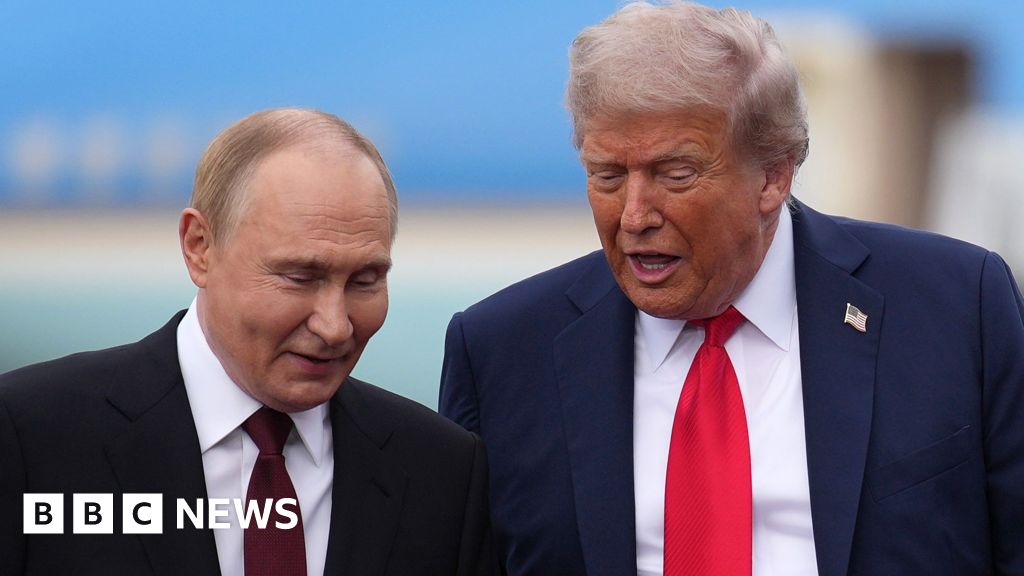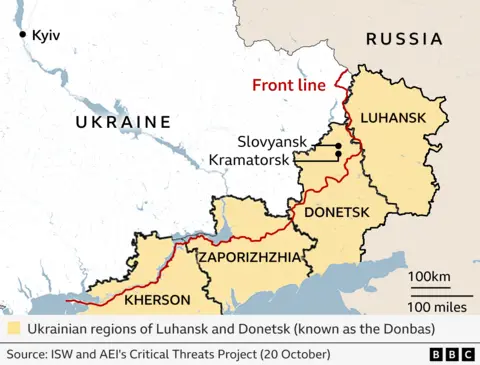Useful information
Prime News delivers timely, accurate news and insights on global events, politics, business, and technology
Useful information
Prime News delivers timely, accurate news and insights on global events, politics, business, and technology

Donald Trump has said he did not want a “wasted meeting” after a plan to hold face-to-face talks with his Russian counterpart Vladimir Putin over the war in Ukraine was suspended.
The US president indicated that a key point remains Moscow’s refusal to cease fighting along the current front line, in remarks at the White House on Tuesday.
Previously, a A White House official had said there were “no plans” for a meeting between Trump and Putin “in the immediate future,” after Trump said Thursday that the two would hold talks in Budapest within two weeks.
Key differences between the US and Russian peace proposals became increasingly clear this week and appeared to have ended the chances of a summit.
Trump and Putin last met in Alaska in August, during a hastily organized summit that yielded no concrete results.
The White House’s decision to shelve plans for a second meeting between Trump and Putin can be seen as an attempt to avoid another similar scenario.
“I guess the Russians wanted too much and it became clear to the Americans that there will be no deal for Trump in Budapest,” a senior European diplomat told Reuters.
A preparatory meeting between US Secretary of State Marco Rubio and Russian Foreign Minister Sergei Lavrov was scheduled this week, but the White House said the two had had a “productive” call and that a meeting was no longer “necessary.”
On Monday, Trump accepted a ceasefire proposal backed by kyiv and European leaders to freeze the conflict on the current front line.
“Let it be cut as it is,” he said. “I said, cut and stop the battle line. Go back home. Stop fighting, stop killing people.”
Russia has repeatedly opposed freezing the current line of contact.
Kremlin spokesman Dmitry Peskov said the idea had been repeatedly raised with the Russians, but that “the coherence of Russia’s position does not change,” referring to Moscow’s insistence on the complete withdrawal of Ukrainian troops from the conflicted eastern regions.
Moscow was only interested in a “long-term sustainable peace,” Sergei Lavrov said on Tuesday, hinting that freezing the front line would only amount to a temporary ceasefire.
The “root causes of the conflict” need to be addressed, Lavrov said, using Kremlin shorthand for a series of maximalist demands that include recognition of full Russian sovereignty over the Donbas, as well as the demilitarization of Ukraine, something impossible for kyiv and its European partners.

European leaders issued a statement with Zelensky earlier on Tuesday saying any talks to end the war in Ukraine should start with freezing the current front line and accused Russia of not being “serious” about peace.
Zelensky said the frontline discussions were the “beginning of diplomacy,” which Russia was doing everything it could to avoid.
The only issue that Moscow could “pay attention to” is the supply of long-range weapons to Ukraine, he added.
Trump had spoken by phone with Putin about a summit in the Hungarian capital, a day before meeting with Ukrainian President Volodymyr Zelensky at the White House.
Some reports suggested those talks had been a “shouting match,” and sources suggested Trump had pressured Zelensky to give up large areas of territory in the eastern regions of Donetsk and Luhansk, known collectively as Donbas, as part of a deal with Russia.
However, Zelensky has always said that Ukraine cannot give up the parts of Donbas it still holds, arguing that Russia could later use the area as a springboard for new attacks.
Putin’s unscheduled call with Trump last Thursday came after speculation that the United States was preparing to send long-range Tomahawk missiles to kyiv that could potentially strike deep into Russia.
Zelensky said it was the Tomahawks issue that forced Russia to engage in debate.
Despite leaving the White House empty-handed, he added that the missile talks turned out to be a “strong investment in diplomacy.”